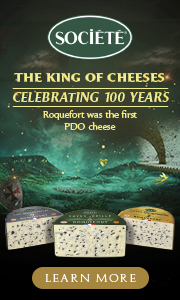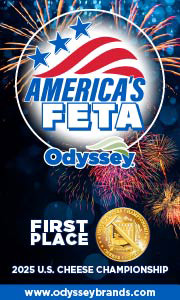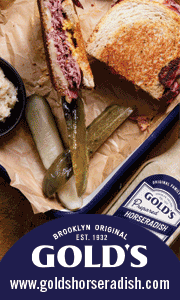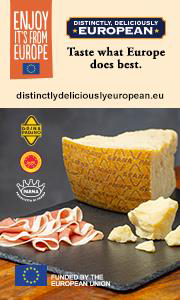High Liner Foods Acquires Mrs. Paul’s, Van de Kamp’s Brands
 High Liner Foods Inc., a leading North American value-added frozen seafood company, has entered into a purchase agreement to acquire the Mrs. Paul’s and Van de Kamp’s brands of frozen breaded and battered fish products from Conagra Brands for $55 million, inclusive of approximately $36 million in inventory. The purchase price is subject to a customary inventory adjustment.
High Liner Foods Inc., a leading North American value-added frozen seafood company, has entered into a purchase agreement to acquire the Mrs. Paul’s and Van de Kamp’s brands of frozen breaded and battered fish products from Conagra Brands for $55 million, inclusive of approximately $36 million in inventory. The purchase price is subject to a customary inventory adjustment.
“This is a highly strategic and compelling opportunity for High Liner Foods that will serve as a catalyst for further growth in the U.S retail market,” said Paul Jewer, president and chief executive officer of High Liner Foods. “By taking full ownership of these well established and respected brands, we will capture additional value for our shareholders and ensure a seamless transition for existing customers. We look forward to offering choice and value to an expanded portfolio of customers and consumers in the growing U.S market.”
High Liner Foods currently co-manufactures products for Mrs. Paul’s and Van de Kamp’s brands at its U.S. based manufacturing facilities, an average of 25 million pounds annually. The transaction secures the volume associated with the company’s current contract with Conagra, which is due to expire in 2027. It is anticipated to increase High Liner Foods’ annual volume from this business to a total of approximately 29 million pounds of fish procured, processed and sold in the United States, aligned with the company’s strategy to continue to diversify its global supply chain.
Before reaching the anticipated annual run rate of $11 million Adjusted EBITDA in 2027, which is inclusive of current contract margin, incremental contribution and synergies, the transaction is anticipated to generate incremental Adjusted EBITDA for 2026 of approximately $4 million on top of existing contract margins. The company anticipates approximately 12 to 18 months of ramp-up time to realize synergies from across the Company’s operations which are reflected, after transaction costs, in the estimated annual run rate from 2027 onward. The transaction is expected to be slightly accretive to Adjusted EBITDA starting in the second half of 2025.
Mrs. Paul’s and Van de Kamp’s are leading brands in the frozen breaded and battered category in U.S. retail with high consumer awareness. High Liner Foods intends to leverage the brands’ strong conversion metrics and brand equity to drive incremental sales of its diversified portfolio of branded and value-added retail products through an expanded distribution network and a significant national base of new retail customers.
The company will fund the transaction from its existing ABL facility. The transaction is expected to close at the end of June 2025, subject to customary closing conditions.
Jewer concluded, “This strategic transaction is one example of the steps we are taking to position High Liner Foods for future growth, leveraging our healthy balance sheet today to secure profitable volume and incremental growth for years to come. We have a clear line of sight to significant synergies that will strengthen our performance over time through operational efficiencies and incremental sales opportunities.”
For more news of interest to the food and beverage industry, subscribe to Gourmet News.
CSI Offers Wild-Captured Seafood Certification
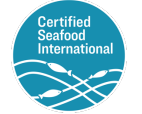 Certified Seafood International, Inc. has announced a new choice in the certification of wild-capture seafood. CSI will focus on delivering an affordable and effective eco-certification program that provides credible assurance, expands access to more high-performing fisheries and promotes greater transparency about the seafood that we eat.
Certified Seafood International, Inc. has announced a new choice in the certification of wild-capture seafood. CSI will focus on delivering an affordable and effective eco-certification program that provides credible assurance, expands access to more high-performing fisheries and promotes greater transparency about the seafood that we eat.
“All of us want wild-capture fisheries to remain healthy and productive for generations to come,” said Christine Penney, chair of the CSI board and vice president of sustainability and public affairs at Clearwater Seafoods. “Credible third-party certification programs have an important role to play in recognizing responsible management practices and providing assurance to the market. We are pleased that CSI will expand the choices available to global seafood stakeholders.”
CSI was developed in partnership with credible regional certification programs and looks to build upon those successes. Most significantly, the certificates and standards of the GSSI benchmarked Responsible Fishery Management program are rolling into CSI, meaning that approximately 3 million metric tons of fishery landings are currently certified.
The program’s new global governing board includes individuals from Canada, Japan, New Zealand, South Africa, Mexico, the United Kingdom and the United States.
“The CSI program will assess fisheries against a clear and rigorous Fisheries Standard grounded in the Guidelines of the United Nations Food and Agriculture Organization,” said Mike Kraft, CSI executive director. “We believe that a stable standard, focused on fisheries management and based on internationally recognized UN principles, provides clarity and consistency that is vital for fisheries striving to achieve certification.”
The association offers the ability to identify harvest origin on the eco-label, one aspect of the improved transparency that it is committed to promoting over time. More information about the CSI Program is available at csicertified.org.
For more news of interest to the seafood industry, subscribe to Gourmet News.
IFCO Launches Marina, Digitally Enabled Reusable Fish Crate
 IFCO, a leading provider of reusable packaging containers, has launched Marina, the smart reusable IFCO Fish Crate. Designed in close collaboration with the fishing industry, Marina brings greater protection, efficiency and sustainability to the fresh fish and seafood supply chain. Featuring track-and-trace Bluetooth Low Energy tags and QR codes, the Marina Fish Crate enables real-time data collection, improving the cold chain management of fresh and chilled products along the entire fish and seafood supply chain, from ship to all points of sale.
IFCO, a leading provider of reusable packaging containers, has launched Marina, the smart reusable IFCO Fish Crate. Designed in close collaboration with the fishing industry, Marina brings greater protection, efficiency and sustainability to the fresh fish and seafood supply chain. Featuring track-and-trace Bluetooth Low Energy tags and QR codes, the Marina Fish Crate enables real-time data collection, improving the cold chain management of fresh and chilled products along the entire fish and seafood supply chain, from ship to all points of sale.
Single-use expanded polystyrene boxes can break down into microplastic pollution and contaminate the marine food chain and human health, so governments around the world are increasingly tightening regulations and introducing EPS bans. As a result, many producers, wholesalers and retailers in the fishing industry have made eliminating EPS boxes and switching to sustainable packaging a priority. The IFCO SmartCycle pooling system ensures the switch to Marina is simple, seamless and sustainable.
Nestable when empty, securely stackable when full, the Marina Fish Crate saves space on ships and on shore, cutting carbon emissions in transport and improving handling conditions. Its uniform dimensions are compatible with existing supply chains, automated logistics systems and the IFCO Plastic Pallet Dora.
Francesca Amadei, vice President Southern Europe at IFCO, highlights the unique advantages of the Marina Fish Crate: “Marina is the result of intense collaboration across the fishing industry. We’ve taken on board the unique demands of every step of the fresh fish and seafood supply chain in our R&D efforts.”
The Marina Fish Crate offers a sustainable and efficient complete packaging solution. Like all IFCO Reusable Packaging Containers (RPCs) Marina uses fewer natural resources throughout its life cycle compared to single-use packaging. And, unlike conventional fish boxes made from expanded polystyrene (EPS) that are typically sent to landfills or end up as marine pollution, Marina is 100% recycled at the end of a long service life into new products.
Inigo Canalejo, vice president ESG and strategic marketing at IFCO, highlights the long-term benefits of Marina for the fishing industry and the planet:
“We see it as our responsibility to improve the environmental sustainability of every category of the fresh grocery supply chain. Our Marina Fish Crate is a smart, innovative packaging solution that will have a lasting positive impact on the fresh fish and seafood supply chain. We’re proud to have designed a sustainable and more efficient alternative to harmful expanded polystyrene containers.”
For more news of interest to the seafood industry, subscribe to Gourmet News.





